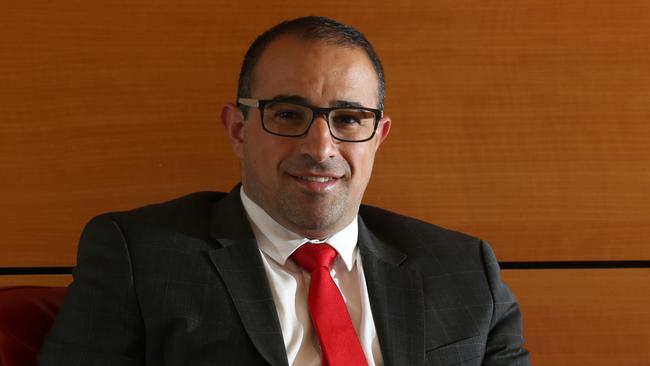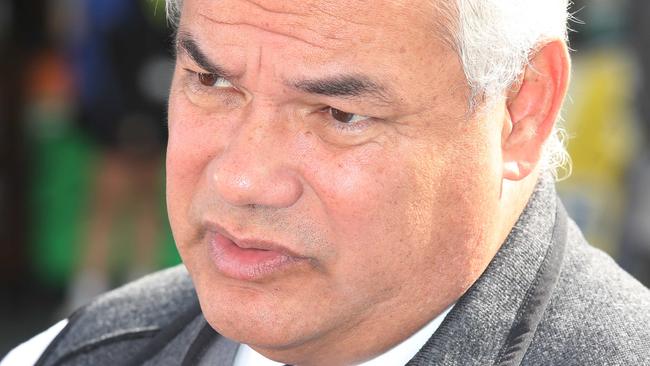Gold Coast property: Developers call for tax breaks and
Development industry figures have called for the axing of a range of critical taxes saying it will unlock billions of dollars in stalled projects and save the city’s struggling housing sector.
Property
Don't miss out on the headlines from Property. Followed categories will be added to My News.
Development industry figures have called for the controversial axing of a range of critical taxes saying it will unlock billions of dollars in stalled projects and solve the city’s struggling housing sector.
Pressure is growing on the Gold Coast City Council and state government to reveal how they will solve the region’s accommodation crisis, with development lagging behind the dramatic population growth.
With more than 40,000 units across hundreds of tower projects approved but yet to begin construction, developers say many projects which would take a dent out of the shortage could be ramped up immediately.

Homecorp boss Ron Bakir said the cutting of taxes and greater incentives to attract skilled construction workers would solve the issues faced by the industry.
“Clearly duties, all of them, as well as land taxes are a huge burden for development while if the council could discount infrastructure charges would be a major help,” he said.
“Construction prices are so high and unless you are selling luxury products, and unless there are significant discounts from all levels of government there is no chance of putting anything into the market right now.
“We run feasibility studies on multiple projects and unless you are in that luxury space, forget it, there’s no chance.”

Real Estate Institute of Queensland (REIQ) Gold Coast chairman Andrew Henderson called for stamp duties to be temporarily suspended or outright abandoned in a bid to stimulate both development and property sales.
“Taking fees and charges away is one way to stimulate the industry but also need to get the people who are buying into projects to sell their existing homes,” he said.
“There needs to be incentives for people to move out of their family homes and into units as they look to retire and downsize but stamp duty is such an impost that people will stay in the family homes longer.”
Hickey Lawyers director Dan Marino, who works closely with developers, said many projects were unviable in the current market but said slashing GST on sales would dramatically change the sector.

“Where escalated building prices and increased costs of finance are frustrating feasibilities, giving back tax and stamp duty relief to developers may reverse an unfeasible development with a 7-10 per cent starting margin that may result in more active development,” he said.
“Reform of tax to accelerate development and building activity is problematic but could definitely be considered.”
The Gold Coast City Council previously slashed infrastructure charges in the early 2010s to revive the sector in the post global financial crisis era.
A 2015 council report found the slashing of infrastructure charges meant that developers received discounts of more than $31.8 million in exchange for fast-tracking their work.
The first phase of the program ran between October 1, 2012 and April 30, 2013 and offered a 100 per cent discount on transport, recreation facilities and stormwater infrastructure charges for projects completed by April 30, 2015.
Phase two ran between May 1, 2013 and September 30, 2015 and offered a 50 per cent discount.

However Mayor Tom Tate said there were no plans to slash infrastructure funds across the sector but council would consider more targeted incentives.
“To reduce the infrastructure charges while the building industry is going gangbusters, as we did in 2012 would just fuel more development applications and developments and right now it is steady as she goes,” he said.
‘I don’t want to fuel that up because we already do not have enough trades and materials.
“However in affordable housing sector we need to look closer at how to tweak infrastructure costs to get that sector going.”
It comes as new research by independent analyst Michael Matusik showed Gold Coast land values will outstrip house prices for at least two years.
‘’We are expecting to see house prices grow from between three to five per cent per annum while land prices are forecast to grow by 10 to 20 per cent (per sqm) per year,’’ he said.
“The average time taken for vacant land prices (per sqm) to double across the five cities to June 2023 was 9.5 years.
“Sydney led the charge, with land prices doubling in 4.9 per cent. Following closely behind, the Gold Coast’s vacant land values doubled in just five years.”
Mr Matusik said the growth in land values was expected to continue to surpass the growth in house prices over the next two years.
More Coverage
Originally published as Gold Coast property: Developers call for tax breaks and





